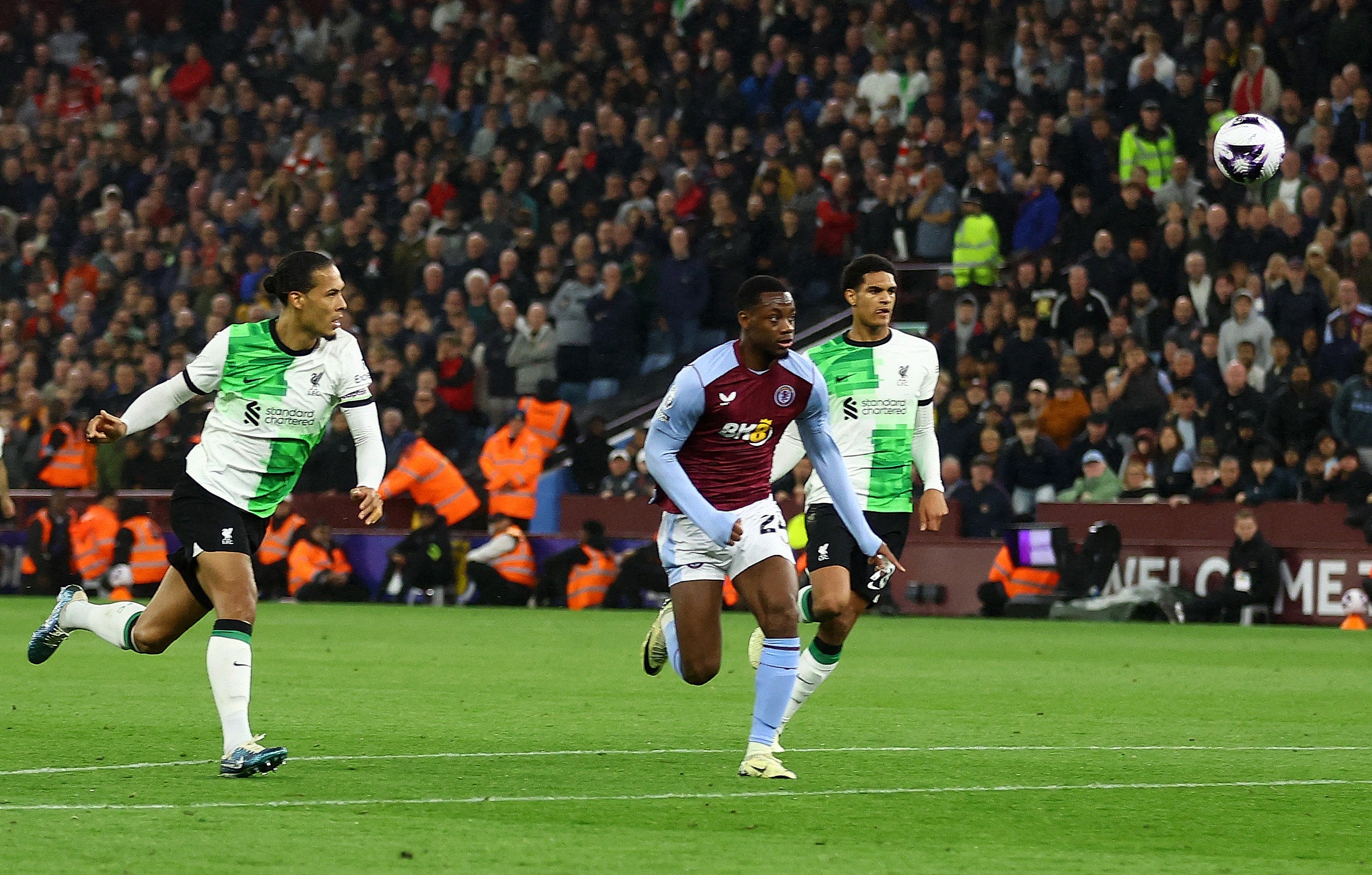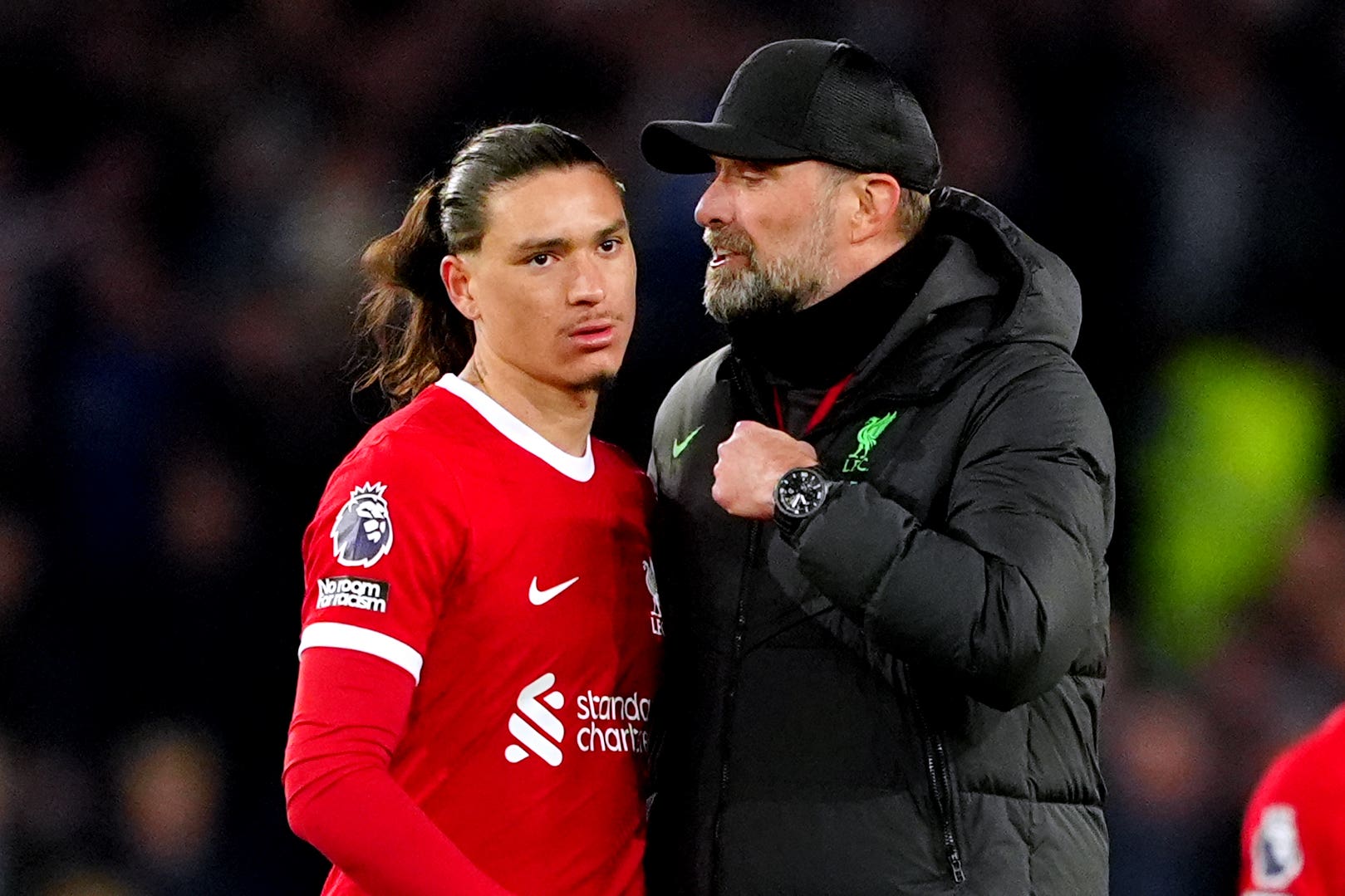The good and the bad of Jurgen Klopp’s Liverpool on show right until the end
Klopp’s imperfect entertainers lived up to the billing as they demonstrated their flaws and their virtues in the away finale

Your support helps us to tell the story
This election is still a dead heat, according to most polls. In a fight with such wafer-thin margins, we need reporters on the ground talking to the people Trump and Harris are courting. Your support allows us to keep sending journalists to the story.
The Independent is trusted by 27 million Americans from across the entire political spectrum every month. Unlike many other quality news outlets, we choose not to lock you out of our reporting and analysis with paywalls. But quality journalism must still be paid for.
Help us keep bring these critical stories to light. Your support makes all the difference.
For Jurgen Klopp, the long goodbye will not prove the fairytale farewell. Instead of bowing out with his greatest Liverpool campaign, his final away game offered something of the story of a season. A 3-3 draw at Aston Villa, at a ground where Klopp got one of the pivotal, and most dramatic, wins in the season he won the Premier League title and suffered his heaviest, and most surreal, defeat, 7-2, the following year, was a snapshot of the themes and the dreams.
It illustrated the flawed brilliance of his Liverpool 2.0, how they flirted with glory and ended up with entertaining improvement. Klopp will not go out having subdued the rest of the division, as Sir Alex Ferguson did, or in sad decline, like Arsene Wenger was, but as a manager who built one great team and leaves a work in progress for his successor.
There was a twist on a theme: late goals and comebacks have been a staple of Liverpool’s season. This time they suffered from them, Aston Villa scoring twice in four late minutes. Eight days earlier, they had led 4-0 against Tottenham and risked only drawing. Amid a lack of control, each told a tale: the loss of leads in two games against Manchester United, in the FA Cup and the Premier League, are why Klopp’s reign will end at Anfield on Sunday with a celebration, but without anything at stake.
But there was something fitting in the way Klopp’s penultimate game was a thriller. His has been a hugely entertaining ride; it is why Liverpool have enjoyed it even without knowing the destination. A more pragmatic manager with a duller style of play could be judged on trophies alone; Klopp won everything he entered – apart from the Europa League where, long before he reached Villa, Unai Emery denied him in the 2016 final – but not always.
But he turned matches into events. He bent many of them to his will. Yet sometimes the wild nature of it all meant Liverpool suffered amid the anarchy and the jeopardy. The excitement threatened to be their undoing. One of Klopp’s first great games, three months into his reign, was a 3-3 draw with Arsenal. Perhaps his last will be a 3-3 draw with Aston Villa. But there has been a sense of electricity and urgency, a non-stop drama, plenty of glorious games.
There are ways of assessing the Klopp years. In a sense, it ends as it starts: his second team, like his first, has been built from the front, forever capable of scoring. In the 27 years before Klopp’s arrival, Liverpool had only scored 80 league goals in one season. They have done so in five campaigns under the German. Yet Villa’s three goals make it 41 conceded this season: in Klopp’s three best seasons, Liverpool were defensively outstanding, conceding a mere 22 goals in 2018-19, 33 the following year and 26 in 2021-22. In those three seasons, they were either the world’s best or very close.

Without that defensive frugality that stemmed from positional chemistry, they have been entertainers but imperfect. They may end this season having conceded 50 per cent more goals than Arsenal. This has become Liverpool’s longest run without a clean sheet since 1998; they have conceded at least twice in four consecutive league games for the first time since 2014, when an inability to keep clean sheets ultimately cost Brendan Rodgers’ side the title, when their 3-3 draw with Palace was nicknamed ‘Crystanbul’.
Ultimately, Liverpool were not defensively good enough to be champions; they were too profligate at times as well. They scored three goals at Villa Park but did not kill the game with a fourth. They have had the most shots in the Premier League but some have been glaring misses. It is now someone else’s problem.
“I am allowed to see just the good bits of the season,” Klopp said. “If you carry on then you have to think about what didn’t well and make changes and adjustments of whatever. But that’s obviously not me.” So it is for Arne Slot to decipher the enigma of Darwin Nunez, to add goals to the other excellent work Luis Diaz does, to work out which of the players who have had outstanding spells this season – the breakout star Jarell Quansah, the fast-improving Harvey Elliott, Curtis Jones, Joe Gomez, the early-season revelation Dominik Szoboszlai – figure in his strongest side. If the task is to add solidity, the last few weeks have suggested that there is still a vacancy for a high-class defensive midfielder. Wataru Endo had a fine winter but looked a stop-gap replacement for Fabinho. Alexis Mac Allister is more suited to an advanced role. Liverpool’s defensive record reflects on the midfield too.

But don’t expect to see Klopp criticising his players. It is one reason why he found the difficult seasons even tougher because he had to conjure eloquent explanations without blaming anyone. He has been true to himself to the last. “For me, the story of the season is the boys showed have a really, really good character and a sensational attitude,” said Klopp.
That may help Slot. Klopp leaves a void, a legacy, a host of memories, a series of indelible moments. And, more prosaically, a team in third. “I’m not over the moon about it, but we have to accept we cannot be the best or the second-best team in the league,” Klopp said. “That’s a good basis for the future and that’s all you can ask for.”
And he has been generous in suggesting there is room for another to do better. “New influences always help, that’s how it is,” he said. “We did what we could. If we could have done better, we probably would have. We are where we are and that’s it.”
Join our commenting forum
Join thought-provoking conversations, follow other Independent readers and see their replies
Comments